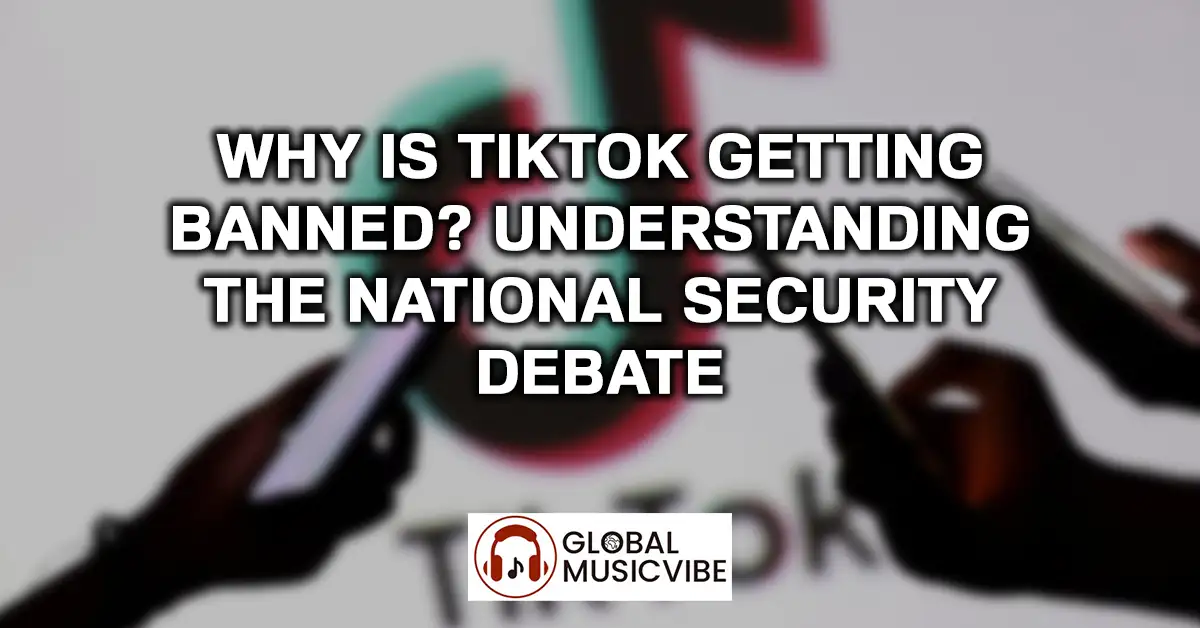Why is TikTok getting banned? This question has dominated headlines as the popular short-form video platform faces unprecedented scrutiny from the United States government. With over 170 million American users caught in the crosshairs of an ongoing geopolitical battle, understanding the complex reasons behind this potential ban has never been more critical. The controversy centers on national security concerns, data privacy issues, and the app’s Chinese ownership through ByteDance, creating a perfect storm that threatens to reshape social media as we know it.
The Legal Framework Behind the TikTok Ban
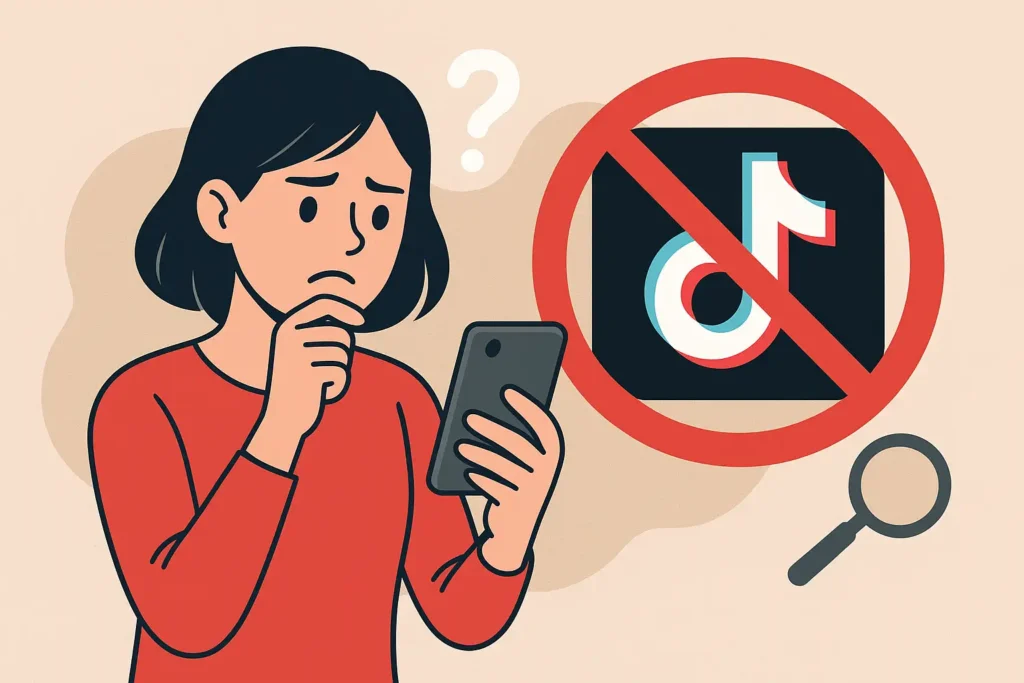
The ban officially took effect on January 19, 2025, after ByteDance refused to sell TikTok before the deadline set by the Protecting Americans from Foreign Adversary Controlled Applications Act (PAFACA). This legislation, signed into law by President Joe Biden in April 2024, represents the culmination of years of bipartisan concern over foreign-controlled applications operating on American soil.
The Supreme Court upheld PAFACA in January 2025, confirming the government’s authority to ban the app due to national security concerns tied to its Chinese ownership. The law required ByteDance to complete a qualified divestiture or face severe penalties, including fines that could reach nearly $1 trillion based on the number of U.S. users.
However, enforcement has been repeatedly delayed through executive orders issued by President Trump, with the latest extension pushing the deadline to December 16, 2025. This series of extensions reflects ongoing negotiations between the United States and China regarding TikTok’s future ownership structure.
National Security Concerns: The Core of the Controversy
The primary justification for banning TikTok revolves around three main national security threats that lawmakers and intelligence officials have identified.
Data Collection and Privacy Risks
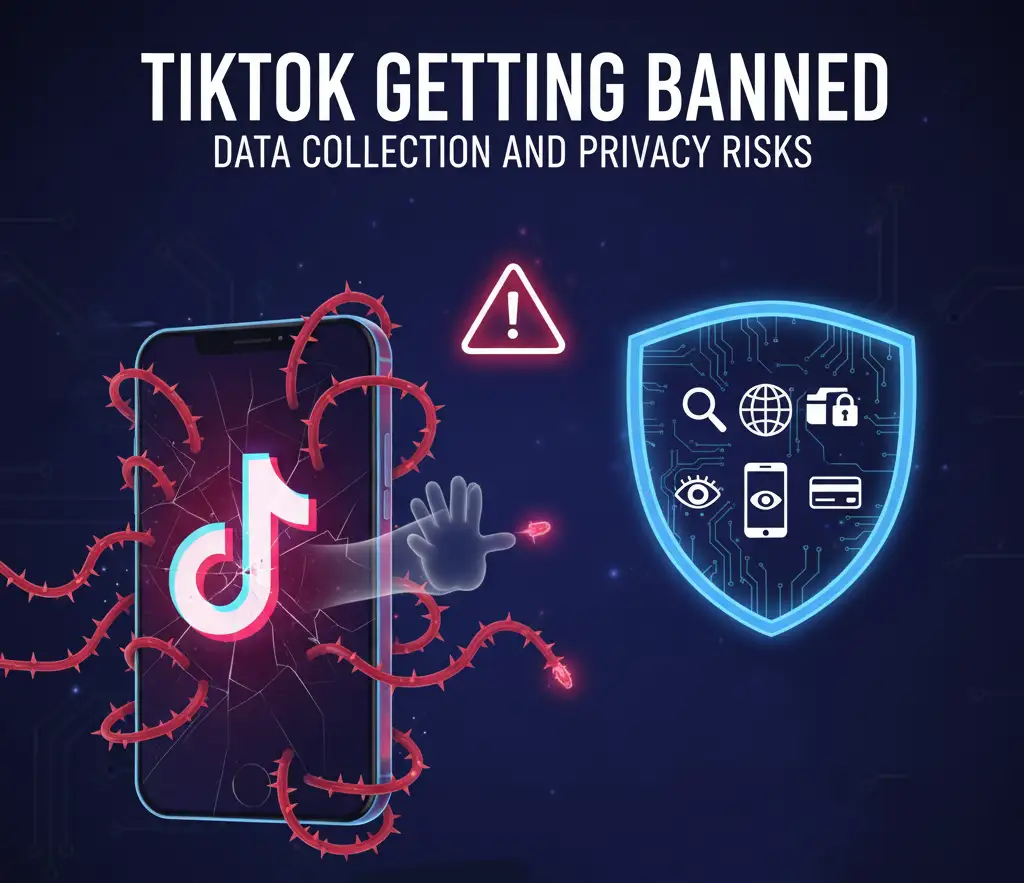
Government officials have identified that TikTok can be used to collect personal data on Americans, including geolocation, contacts, and device information. This concern isn’t merely theoretical—the app collects vast amounts of user information, from browsing habits to biometric data like facial recognition and voice patterns.
Under Chinese law, companies like ByteDance must provide user data to the government upon request, unlike in the United States where court orders backed by evidence are required. This fundamental difference in legal frameworks creates a situation where American user data could potentially be accessed by a foreign adversary without the same constitutional protections that govern domestic companies.
The data privacy concerns extend beyond individual user information. The 34 million videos posted daily on TikTok become ideal training material for massive generative AI models that could create convincing deepfakes and launch large-scale influence operations. This represents a more sophisticated threat than traditional data collection, as bulk audiovisual data can be weaponized for misinformation campaigns targeting specific demographics.
Influence Operations and Content Manipulation
Officials worry that TikTok could be part of a Chinese government influence operation designed to sway U.S. politics. The concern centers on the app’s powerful recommendation algorithm, which determines what content appears on users’ feeds. If controlled by a foreign government, this algorithm could theoretically suppress certain viewpoints while amplifying others, effectively shaping public discourse without users’ awareness.
The National Security Agency director expressed concern about TikTok’s ability to not only influence messaging but also turn off messages when controlling such a large audience. This capability to control information flow represents a modern form of soft power that could have far-reaching implications for democratic processes.
Malicious Software and Cybersecurity Threats
The third major concern involves the potential for TikTok to inject malicious software onto users’ devices. Voluntarily downloading TikTok onto phones or devices could allow for the injection of malicious software by China, though this represents the most serious but least evidenced of the three primary concerns.
The Evidence Question: What We Know and Don’t Know
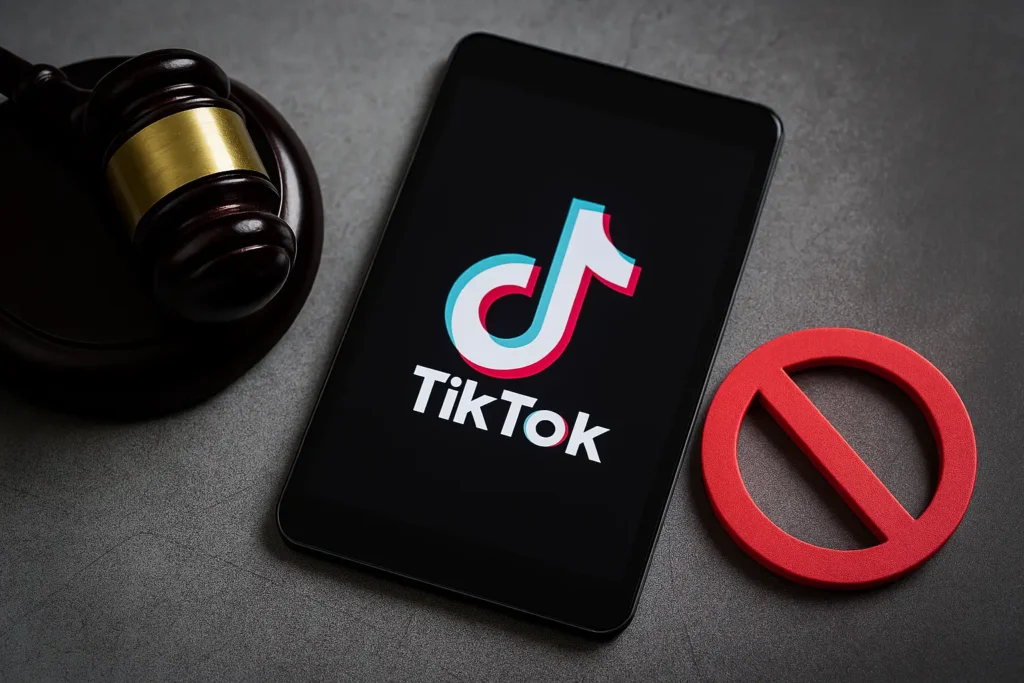
Despite the government’s strong stance on TikTok’s potential threats, the evidence picture remains complex and sometimes contradictory.
Security experts note that the government’s fears, while serious, currently appear to reflect only the potential for TikTok to be used for foreign intelligence, not that it has been, as there is still no public evidence the Chinese government has actually spied on people through TikTok. This distinction between potential and actual harm has become a central point of contention in the debate.
However, TikTok’s track record includes documented privacy violations. In December 2022, the company admitted that employees had spied on reporters using location data in an attempt to track down the source of leaked information, and those employees were subsequently fired. ByteDance employees improperly accessed TikTok data on reporters for BuzzFeed and Financial Times, leading to the termination of four employees, including two based in China.
These incidents demonstrate that concerns about data access aren’t purely hypothetical, even as the company has implemented stricter controls following these revelations.
TikTok’s Response: Project Texas and Data Security Measures
In response to mounting pressure, TikTok has implemented comprehensive security measures designed to address American concerns while maintaining operations.
In 2022, TikTok established the TikTok U.S. Data Security subsidiary, staffed by over 2,000 U.S.-based employees who control access to protected U.S. user data, content recommendation, and moderation systems in the secure Oracle Cloud. This initiative, known as Project Texas, represents a massive investment in data localization and security infrastructure.
TikTok has opened Dedicated Transparency Centers across the United States, United Kingdom, and Australia, where over 100 analysts can manually inspect the platform’s full source code, including algorithms that power the recommendation system. This unprecedented level of transparency exceeds what most other social media platforms provide to government oversight.
However, critics argue that these measures fall short of addressing fundamental concerns. While Project Texas stores protected U.S. user data on Oracle servers, publicly posted videos are not subject to these restrictions and can still end up on foreign servers, maintaining a global experience that allows for data transfer.
The Broader Context: Why This Matters Beyond TikTok
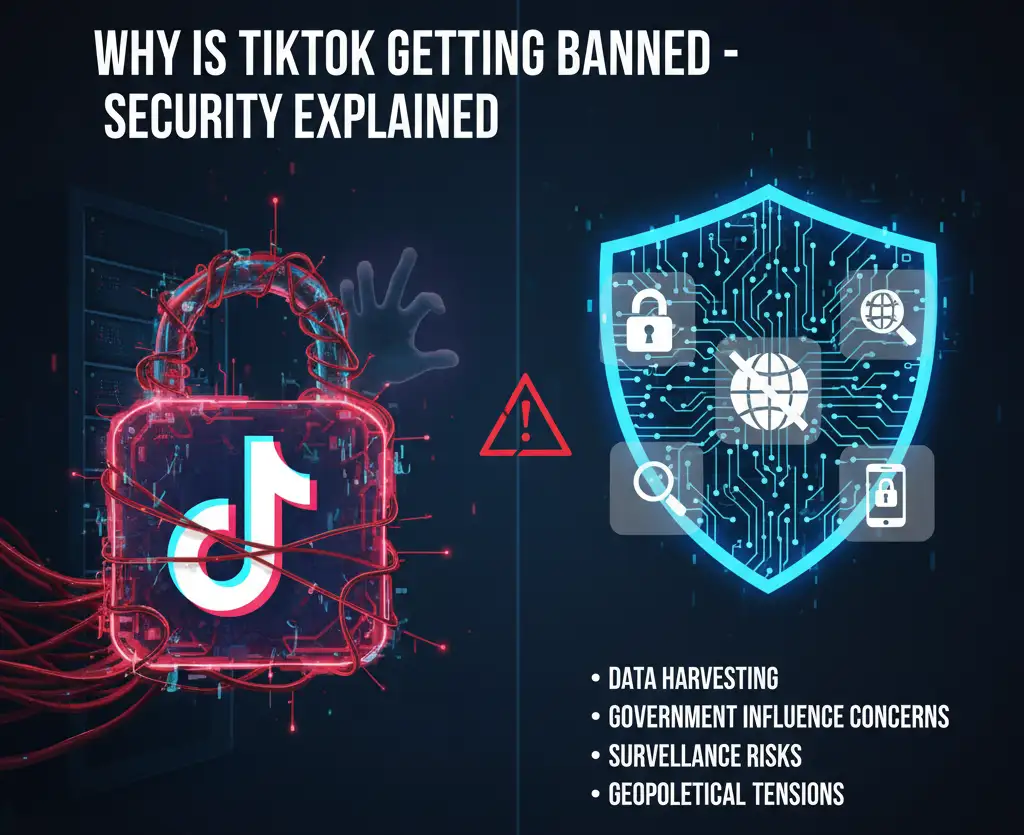
The TikTok ban debate exists within a larger conversation about data privacy, corporate accountability, and the future of internet governance.
Forcing ByteDance to sell or shut down TikTok won’t make Americans’ data more private and secure, as personal information can be accessed by foreign governments through data brokers on the open market. This highlights a fundamental weakness in American privacy protections—the absence of comprehensive federal data privacy legislation.
Support for banning TikTok has dropped sharply, with approximately 50% of Americans supporting a ban in March 2023 compared to just 34% in March 2025, while the share viewing TikTok as a national security threat declined from 59% to 49% over the same period. This shift in public opinion reflects growing skepticism about whether singling out one platform addresses the underlying issues.
Just as music lovers explore diverse content through platforms like those featured in songs categories, TikTok users have become accustomed to the platform’s unique content discovery experience. The potential loss of this platform raises questions about innovation, free expression, and the balance between security and digital freedom.
What’s Next: The Path Forward
The Trump administration has reportedly struck a deal with China to divest TikTok from ByteDance into U.S. control, with negotiations ongoing as of September 2025. This “qualified divestiture” would separate TikTok’s U.S. operations from its Chinese parent company, potentially satisfying legal requirements while preserving the platform.
The deal framework includes new investors, existing ByteDance investors, and maintains Oracle’s cloud computing agreement with TikTok, with expectations for closure within 30 to 45 days. However, significant questions remain about the specifics of this arrangement and whether it will adequately address national security concerns while maintaining TikTok’s functionality.
The outcome of this situation will likely set precedents for how the United States handles other foreign-owned applications. The same national security concerns about data privacy risks and potential foreign influence apply to other popular Chinese apps, such as WeChat, CapCut, and Temu, which handle large amounts of user data.
The Impact on Users and Creators
The potential TikTok ban has created anxiety among millions of American users who depend on the platform for entertainment, community connection, and income generation. Content creators who have built substantial followings and businesses around TikTok face uncertainty about their digital livelihoods.
For users seeking alternatives, the landscape has evolved rapidly. While platforms like Instagram Reels, YouTube Shorts, and other competitors offer similar short-form video experiences, none have fully replicated TikTok’s unique algorithm and community dynamics. The technology behind content recommendation systems relies on intricate algorithms where small differences in implementation can create vastly different user experiences.
In January 2025, many U.S. TikTok users began downloading and switching to the Chinese app Xiaohongshu (RedNote) in protest of the ban, with the app becoming the most-downloaded free app on the Apple App Store. This migration demonstrates both user commitment to the short-form video format and the ironic possibility that banning one Chinese app could drive users to another.
Civil Liberties and Constitutional Questions
The TikTok ban has raised significant constitutional concerns that extend beyond national security considerations.
Civil liberties organizations including the ACLU, Electronic Frontier Foundation, and Knight First Amendment Institute argued in an amicus brief that the Act constitutes a form of prior restraint, where the government prevents speech or publication before it occurs. This represents a fundamental tension between security interests and First Amendment protections.
Rights groups argue that the ban is at odds with free speech and distracts from the need for legislation to protect Americans’ personal data generally, as foreign adversaries can acquire Americans’ information simply by buying it from data brokers. This critique suggests that the TikTok ban treats symptoms rather than addressing the underlying disease of inadequate data privacy protections.
The legal challenges to the ban highlight how difficult it is to balance legitimate security concerns with constitutional rights in the digital age. Social media platforms have become essential venues for self-expression and public discourse, making government restrictions on these platforms particularly sensitive from a free speech perspective.
Lessons and Implications for Digital Governance
The TikTok controversy offers important lessons for how democracies should approach technology regulation in an interconnected world.
Instead of singling out individual apps, comprehensive regulations should safeguard user data across all platforms regardless of ownership, as banning foreign apps without addressing systemic cybersecurity vulnerabilities creates a false sense of security while failing to protect Americans from broader privacy threats. This approach would provide more consistent and effective protection for all users.
The case also highlights the challenges of regulating technology in a globalized economy where data flows across borders constantly. Traditional regulatory frameworks designed for physical goods and services struggle to address the unique characteristics of digital platforms that can serve millions of users instantaneously across multiple jurisdictions.
A comprehensive approach would include enacting federal data privacy legislation that limits the capacity of all platforms to exploit user data without transparency or accountability, while designing targeted, evidence-based regulatory frameworks that uphold civil liberties while ensuring security. This balanced approach acknowledges that national security and civil liberties are not mutually exclusive but fundamentally interdependent in the 21st century.
Frequently Asked Questions
Why is TikTok being banned in the United States?
TikTok faces a potential ban due to national security concerns related to its Chinese parent company, ByteDance. The U.S. government worries that the Chinese government could access American users’ data, use the platform for influence operations, or inject malicious software through the app. The Protecting Americans from Foreign Adversary Controlled Applications Act, signed in April 2024, requires ByteDance to sell TikTok to American owners or face a nationwide ban.
When will the TikTok ban take effect?
The ban technically went into effect on January 19, 2025, but enforcement has been repeatedly delayed through executive orders. As of October 2025, the current enforcement deadline is December 16, 2025. However, negotiations are ongoing between the U.S. and Chinese governments regarding a potential sale that could prevent the ban from being fully implemented.
Can I still use TikTok if the ban happens?
Even if the ban is enforced, it won’t immediately remove the app from users’ devices. The ban would prevent app stores like Apple and Google from offering TikTok for download and would prohibit updates to the existing app. Users who already have TikTok installed could continue using it, but the app would gradually degrade without updates, becoming increasingly buggy and potentially non-functional over time.
What data does TikTok collect from users?
TikTok collects various types of user data including location information, biometric data like facial recognition and voice patterns, device information, usage patterns, contact lists, and content from linked social media accounts. This data collection is similar to what other social media platforms gather, though the concern centers on the potential for this information to be accessed by the Chinese government.
Are other Chinese apps at risk of being banned?
Yes, other Chinese-owned applications could face similar scrutiny. The national security concerns about data privacy and foreign influence that apply to TikTok also extend to other popular Chinese apps like WeChat, CapCut, and Temu. Any application owned by companies in countries designated as “foreign adversaries” could potentially be subject to similar restrictions if deemed a national security threat.
What is Project Texas and how does it address security concerns?
Project Texas is TikTok’s initiative to address U.S. security concerns by storing American user data on Oracle’s cloud servers and establishing a U.S.-based subsidiary with over 2,000 employees who control access to protected data. The project includes transparency centers where independent analysts can review TikTok’s source code and algorithms. However, critics argue these measures don’t fully address concerns about ByteDance’s ultimate control over the platform.
How does the TikTok ban affect content creators?
Content creators who have built businesses and audiences on TikTok face significant uncertainty. While they won’t lose their existing content immediately, the inability to update the app and potential loss of the platform could impact their income and reach. Many creators are diversifying to other platforms like Instagram Reels and YouTube Shorts as a precautionary measure, though these alternatives don’t perfectly replicate TikTok’s unique features.
Is there precedent for banning apps over national security concerns?
Yes, the U.S. government has previously attempted to ban apps over national security concerns. In 2020, the first Trump administration issued an executive order attempting to ban WeChat, another Chinese-owned app, though this was blocked by courts. The U.S. has also blacklisted companies like Huawei and ZTE from using American technology due to espionage concerns, establishing a pattern of restricting Chinese technology firms’ influence.

